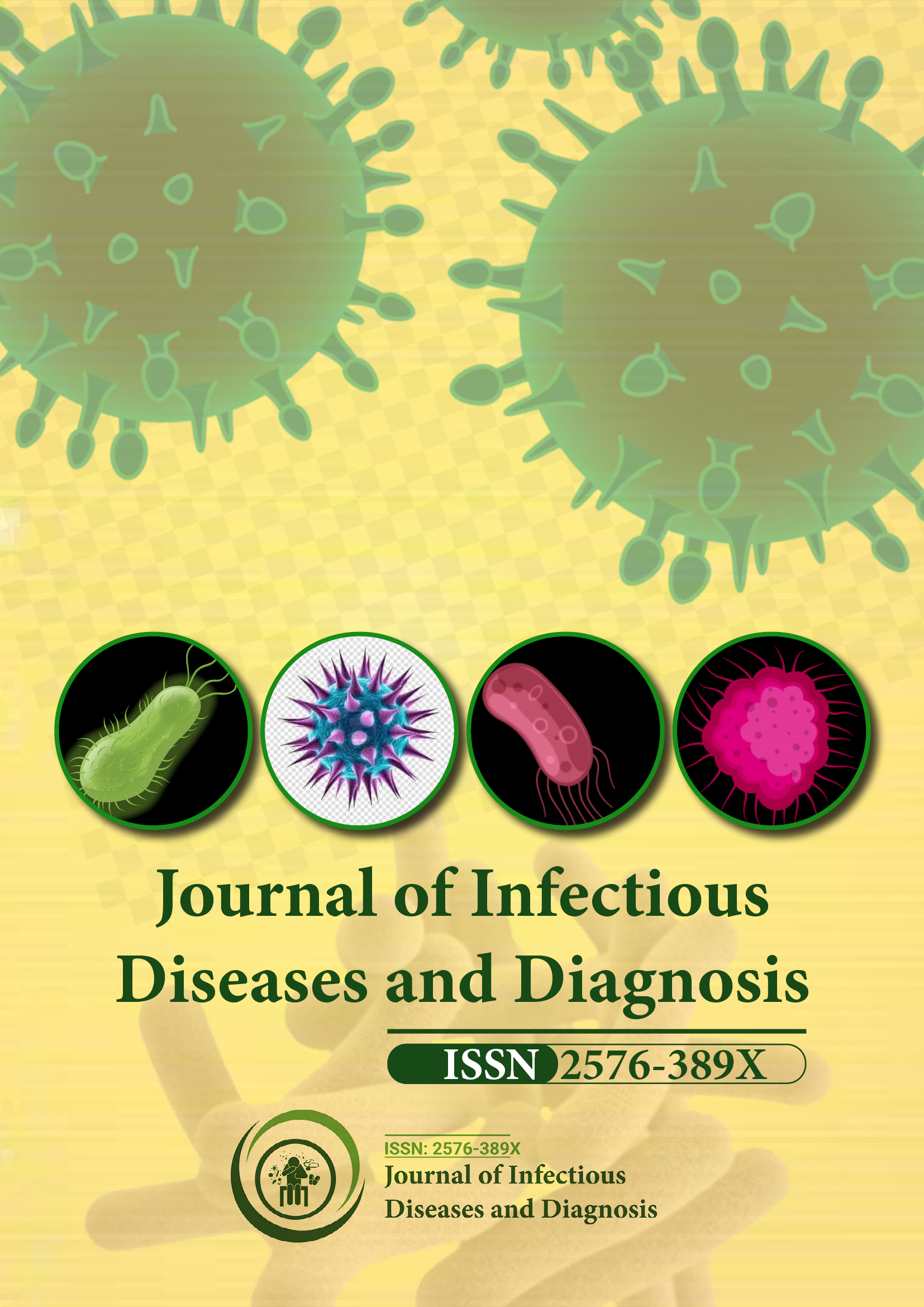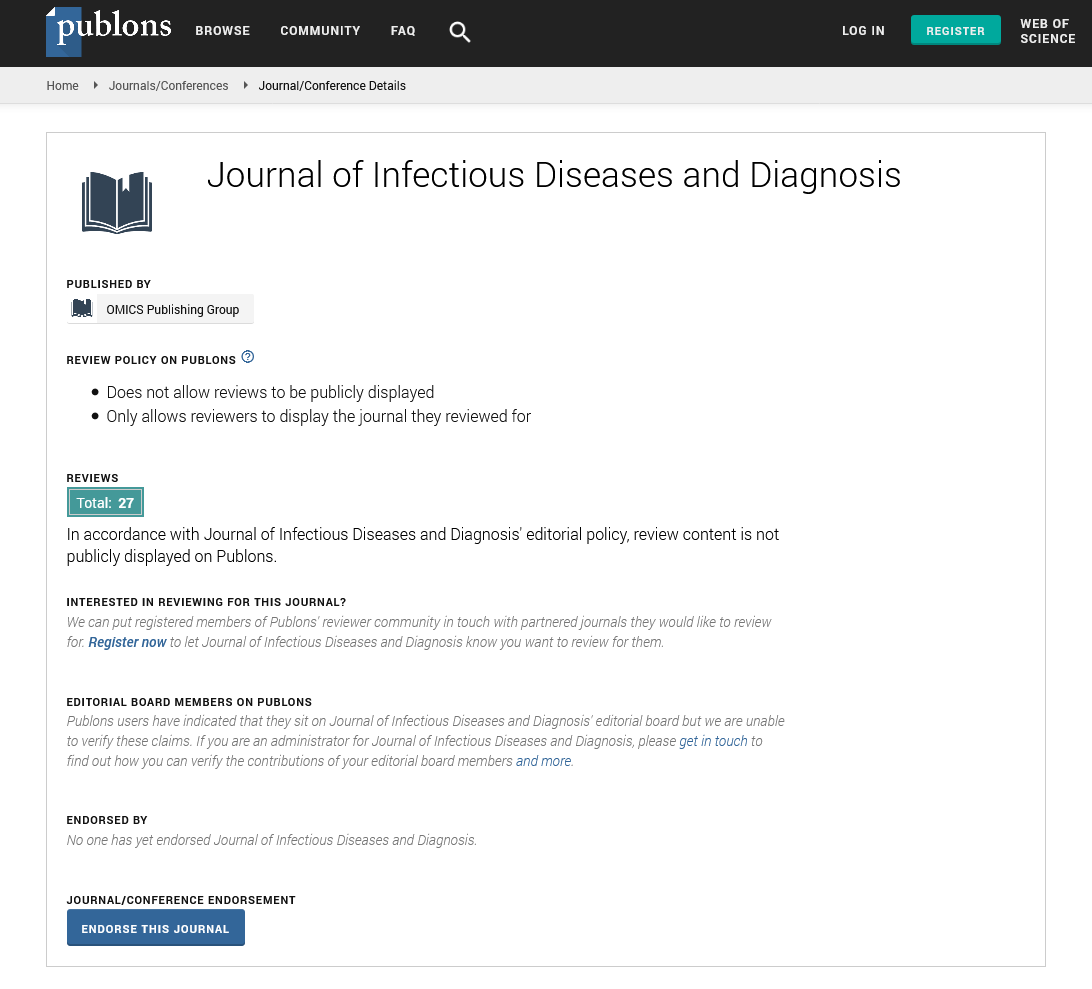Indexed In
- RefSeek
- Hamdard University
- EBSCO A-Z
- Publons
- Euro Pub
- Google Scholar
Useful Links
Share This Page
Journal Flyer

Open Access Journals
- Agri and Aquaculture
- Biochemistry
- Bioinformatics & Systems Biology
- Business & Management
- Chemistry
- Clinical Sciences
- Engineering
- Food & Nutrition
- General Science
- Genetics & Molecular Biology
- Immunology & Microbiology
- Medical Sciences
- Neuroscience & Psychology
- Nursing & Health Care
- Pharmaceutical Sciences
Commentary - (2023) Volume 8, Issue 4
Clinical and Microbiological Features Reveal Perigenital Necrotizing Fasciitis due to Aerococcus urinae
Xian Xio*Received: 03-Jul-2023, Manuscript No. JIDD-23-22541; Editor assigned: 05-Jul-2023, Pre QC No. JIDD-23-22541 (PQ); Reviewed: 20-Jul-2023, QC No. JIDD-23-22541; Revised: 27-Jul-2023, Manuscript No. JIDD-23-22541 (R); Published: 03-Aug-2023, DOI: 10.35248/2576-389X.23.08.227
Description
The emergence of perigenital Necrotizing Soft Tissue Infections (NSTIs) caused by uncommon pathogens continues to challenge clinicians and researchers alike. This study delves into a distinctive case of perigenital NSTI attributed to Aerococcus urinae, shedding light on the unique clinical presentation, diagnostic intricacies, and therapeutic considerations. By examining this rare infection, the study underscores the importance of vigilance, timely diagnosis, and altered management strategies in addressing the complexities of atypical soft tissue infections.
Unraveling the uncommon pathogen
The study encapsulates the intrigue surrounding a perigenital NSTI caused by Aerococcus urinae. This uncommon Gram-positive bacterium, typically associated with urinary tract infections, raises pertinent questions about its role in invasive soft tissue infections. The study delves into the distinct characteristics of Aerococcus urinae, including its microorganism structure, virulence factors, and potential for tissue invasion. The rarity of this case prompts an exploration of the mechanisms that may underlie the transition from urinary colonization to perigenital NSTI.
Clinical presentation and diagnostic challenges
The study examines the clinical presentation of perigenital NSTI caused by Aerococcus urinae, emphasizing the rapid progression and tissue destruction associated with these infections. The title prompts an in-depth discussion of the diagnostic challenges encountered in identifying this unusual pathogen. The nonspecific symptoms, such as localized pain, erythema, and necrosis, may overlap with other soft tissue infections, demanding meticulous clinical evaluation, appropriate imaging, and microbiological analyses for accurate diagnosis.
Microbiological techniques and identification
Accurate identification of Aerococcus urinae as the causative agent is pivotal for guiding optimal treatment. The study delves into the microbiological techniques employed to isolate and identify this bacterium, including urine cultures, blood cultures, and tissue samples. The title result in an exploration of the role of advanced molecular methods, such as Polymerase Chain Reaction (PCR) and Matrix-Assisted Laser Desorption/ Ionization Time-of-Flight Mass Spectrometry (MALDI-TOF MS), in expediting precise pathogen identification, thereby enabling targeted antimicrobial therapy.
Antimicrobial susceptibility and therapeutic strategies
Addressing the susceptibility of Aerococcus urinae to antimicrobial agents is central to effective treatment. The study delves into the antimicrobial profile of this bacterium, highlighting its susceptibility to beta-lactams and vancomycin. The title leads an exploration of the challenges associated with empiric therapy and the importance of altered antimicrobial regimens based on susceptibility testing. The study underscores the significance of early and aggressive surgical intervention, including debridement and wound management, in managing perigenital NSTIs caused by uncommon pathogens.
Clinical implications and future considerations
The study concludes by examining the broader clinical implications of perigenital NSTIs caused by Aerococcus urinae. The title invites contemplation of the potential public health implications, including the need for increased awareness, improved diagnostic capabilities, and enhanced surveillance of uncommon pathogens. The study discusses the importance of collaborative efforts between clinicians, microbiologists, and infection control practitioners to enhance the understanding of these unique infections and develop evidence-based guidelines.
Advancements in soft tissue infection management
The emergence of perigenital NSTI caused by Aerococcus urinae serves as a reminder of the evolving nature of soft tissue infections and the ongoing need for advancements in their management. The study highlights the potential role of novel therapeutic approaches, such as bacteriophage therapy and immunomodulatory agents, in addressing infections caused by atypical pathogens. The title prompts contemplation of future research directions, including the investigation of host-pathogen interactions, microbial virulence factors, and the development of targeted interventions.
Conclusion
Perigenital necrotizing soft tissue infections caused by Aerococcus urinae exemplify the intricate challenges posed by uncommon pathogens in the realm of clinical medicine. This study underscores the significance of a comprehensive approach to diagnosis and management, emphasizing early recognition, accurate identification, and tailored therapeutic strategies. By unraveling the intricacies of this unusual case, the study sheds light on the broader implications for infection control, clinical practice, and future research. The ultimate study remains the optimization of patient outcomes and the continued advancement of our understanding of infectious diseases in diverse clinical scenarios.
Citation: Xio X (2023) Clinical and Microbiological Features Reveal Perigenital Necrotizing Fasciitis due to Aerococcus urinae. J Infect Dis Diagn. 8:227.
Copyright: © 2023 Xio X. This is an open-access article distributed under the terms of the Creative Commons Attribution License, which permits unrestricted use, distribution, and reproduction in any medium, provided the original author and source are credited.

